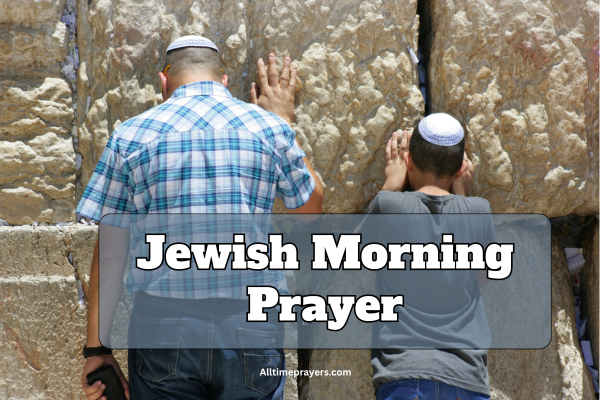Explore the beauty and structure of Jewish morning prayer (Shacharit). Learn the meaning of Modeh Ani, Birkot HaShachar, Pesukei D’Zimra, Shema, Amidah, and how to turn your dawn into a sacred encounter.
Each morning, Jewish worshipers rise to welcome the light of a new day through Shacharit , the morning prayer service. Derived from shachar (dawn), Shacharit is one of the three daily prayer services in Judaism (alongside Mincha and Maariv).
For many, Shacharit is more than liturgy-it is a rhythm of gratitude, grounding, and spiritual ascent. In this post, we will walk through the structure and meaning of the Jewish morning prayer, include reflections and insights, and suggest how individuals (whether familiar with Jewish practice or new) can derive deeper connection from morning devotion.
1. The Place of Shacharit in Jewish Prayer Life
In traditional Judaism, the day is framed by three prayer services: Shacharit (morning), Mincha (afternoon), and Maariv (evening). (My Jewish Learning) Shacharit corresponds to the dawn offering in the ancient Temple, linking worship to daily life.
The morning prayer is intended to transform ordinary waking into a sacred encounter. As the Rabbis said, “in the morning God renews His mercies” (Lamentations 3:22–23), echoing the idea that each dawn is a chance for renewal.
The traditional times: Shacharit is recited after sunrise and before midday, though earlier is considered meritorious. Some synagogues also offer an abbreviated “booster” or “mini-Shacharit” version for those tight on time.
2. Structure of the Morning Prayer (Shacharit)
While different communities (Ashkenaz, Sephardic, Conservative, Reform, etc.) have variations, the core structure is broadly consistent. Below is a breakdown with explanations, reflections, and suggestions for personal engagement.
- Prelude / Preparatory Blessings
- Modeh Ani – the first blessing upon waking
- Netilat Yadayim (washing hands)
- Blessings on putting on tzitzit, tallit, Torah study, etc.
- Birkot HaShachar (morning blessings) – a set of short blessings expressing gratitude for simple gifts like sight, movement, clothing, etc.
- Pesukei D’Zimra (“Verses of Song”)
- A sequence of Psalms and biblical verses praising God
- Begins with Barukh She’amar and ends with Yishtabach
- Includes Vayivarech David (verses from Chronicles) in many communities.
- Serves as spiritual “warm-up,” moving the heart toward worship
- Shema and Its Blessings
- The Shema Yisrael (“Hear, O Israel: the Lord is our God…”) and its surrounding blessings, including Emet Veyatziv.
- A foundational affirmation of God’s oneness and faithfulness
- Amidah (Standing Prayer / Shemoneh Esrei)
- The central prayer of praise, petition, and gratitude
- Recited silently by individuals; in many congregations followed by a communal repetition
- Post-Amidah / Concluding Prayers
- Tachanun (supplications) on non-festive days
- Ashrei, U’va L’Tzion, Aleinu, Ein Keloheinu
- Kaddish (sanctification) to conclude
- On Mondays and Thursdays / Special Days
- Torah reading section (if in a minyan)
- Musaf (additional service) on festivals or Shabbat
This structure offers a journey from personal gratitude to communal worship to petition and closure.
3. Key Prayers and Their Meanings
Modeh Ani
The first prayer upon awakening:
Hebrew: מודה אני לפניך …
Translation (approximate): “I give thanks before You, living and eternal King, for You have returned my soul to me with compassion; abundant is Your faithfulness.”
This short prayer is recited even before washing, because it doesn’t invoke God’s sacred name. It expresses immediate gratitude for life and presence.
Birkot HaShachar (Morning Blessings)
These blessings thank God for everyday miracles: restoration of sight, mobility, clothing, insight, freedom, etc. They connect daily routines with spiritual awareness.
One traditional example:

“Blessed are You, Lord our God, King of the universe, Who gives the rooster understanding to distinguish between day and night.”
(Part of Birkot HaShachar) (Sefaria)
Barukh She’amar and Yishtabach
Barukh She’amar opens the Pesukei D’Zimra section, initiating praise.
Yishtabach concludes it with a flourish of praise.
Together they frame the psalms between a canopy of blessing.
Vayivarech David
Inserted in some liturgies during Pesukei D’Zimra, this prayer recounts King David’s blessings. It has a charitable dimension: in some communities, donations (tzedakah) are collected at this moment.
Shema & Emet Veyatziv
After reciting Shema’s declarations, the prayer Emet Veyatziv is recited to affirm God’s truth and the redemption of Israel.
Its structure recalls the Exodus narrative and ties creed to history.
Amidah
Called the “Standing Prayer” or Shemoneh Esrei, this is the heart of Shacharit. It is a time of direct conversation, praise, petition, and gratitude.
While congregational forms vary, the core remains fixed. Many communities follow Ashkenazic, Sephardic, or other rites.
Closing Prayers

After the Amidah, supplication (Tachanun) may be offered (on non-festive days). Following that:
- Ashrei (Psalm 145) and U’va L’Tzion
- Aleinu (a declaration of God’s sovereignty)
- Ein Keloheinu (a short hymn)
- Kaddish to sanctify the end of the service
These closing elements bind individual prayer back into communal purpose.
4. Personal Reflections and Devotional Suggestions
While the liturgy is structured, Shacharit is also a deeply personal spiritual journey. Here are ways to deepen your connection:
- Kavanah (Intention): Jewish tradition emphasizes kavanah-praying with heartfelt intention. Without it, words become lifeless. (Hebrew for Christians)
- Pause at key transitions: After Barukh She’amar, before Shema, after Amidah-pause to listen inwardly or meditate.
- Reflect on themes: Gratitude in Birkot HaShachar, cosmic praise in Pesukei D’Zimra, covenant in Shema, personal requests in Amidah.
- Match liturgy with life: When you pray “restore my soul,” recall nights of fatigue; when you pray for redemption, reflect on personal growth.
5. Testimonies: How Shacharit Transforms Lives
- Rachel in Jerusalem
Rachel shared how reciting the Birkot HaShachar each morning grounded her in gratitude. She said, “Before Shacharit I rushed into the day; after, I begin with purpose and peace.” - David the Convert
David described how learning Modeh Ani and morning blessings helped him feel like part of the Jewish people. “The liturgy connected me across centuries,” he said. - Leah the Busy Mother
Leah began bringing her toddler to synagogue for part of Shacharit. She reflected, “Even just Psalm 145 (Ashrei) sometimes lifts my soul out of daily fatigue.”
These real stories illustrate that daily prayer isn’t merely ritual-it changes how one lives, breathes, and centers.
6. Practical Tips for Beginners & Consistency
- Start small: Begin with Modeh Ani and a few Birkot HaShachar prayers.
- Use transliteration & translation: Many Siddurim (prayer books) include transliteration or English for beginners.
- Attend a minyan: Praying with others helps learn pacing, melody, and cues. (Reddit)
- Set aside time: Even a truncated Shacharit makes a difference if done with intention.
- Reflect on a verse: Choose one verse (e.g. from Ashrei or Shema) to meditate on each day.
Similar Prayer Suggestion For You
- More Prayer:
- “Morning Prayers and Devotions”
- “Morning Prayer For Strength”
- “Jewish Morning Prayer”
- Jewish daily prayers breakdown (Hebrew for Christians)
- Structure of morning service (Conservative Judaism Online)
- Shacharit service overview (My Jewish Learning)
Use these links to establish authority, show sources, and guide readers to deeper resources.
Conclusion: Rise With Purpose
Jewish morning prayer (Shacharit) is a powerful rhythm inviting believers to begin each day in communion with God. It bridges everyday life with eternal purpose, aligning gratitude, praise, covenant, and petition into one spiritual flow.
By learning the structure, reflecting on key prayers, exercising kavanah, and committing to consistency, Shacharit can become not only a ritual, but a living engagement-one that cultivates peace, identity, and connection at dawn.
May your mornings be blessed, your prayers sincere, and your spirit renewed.






